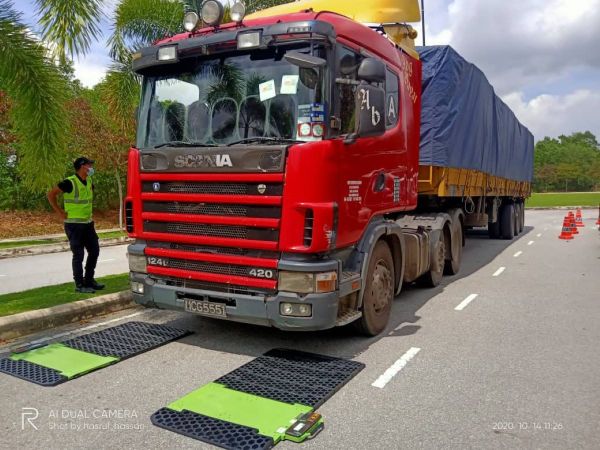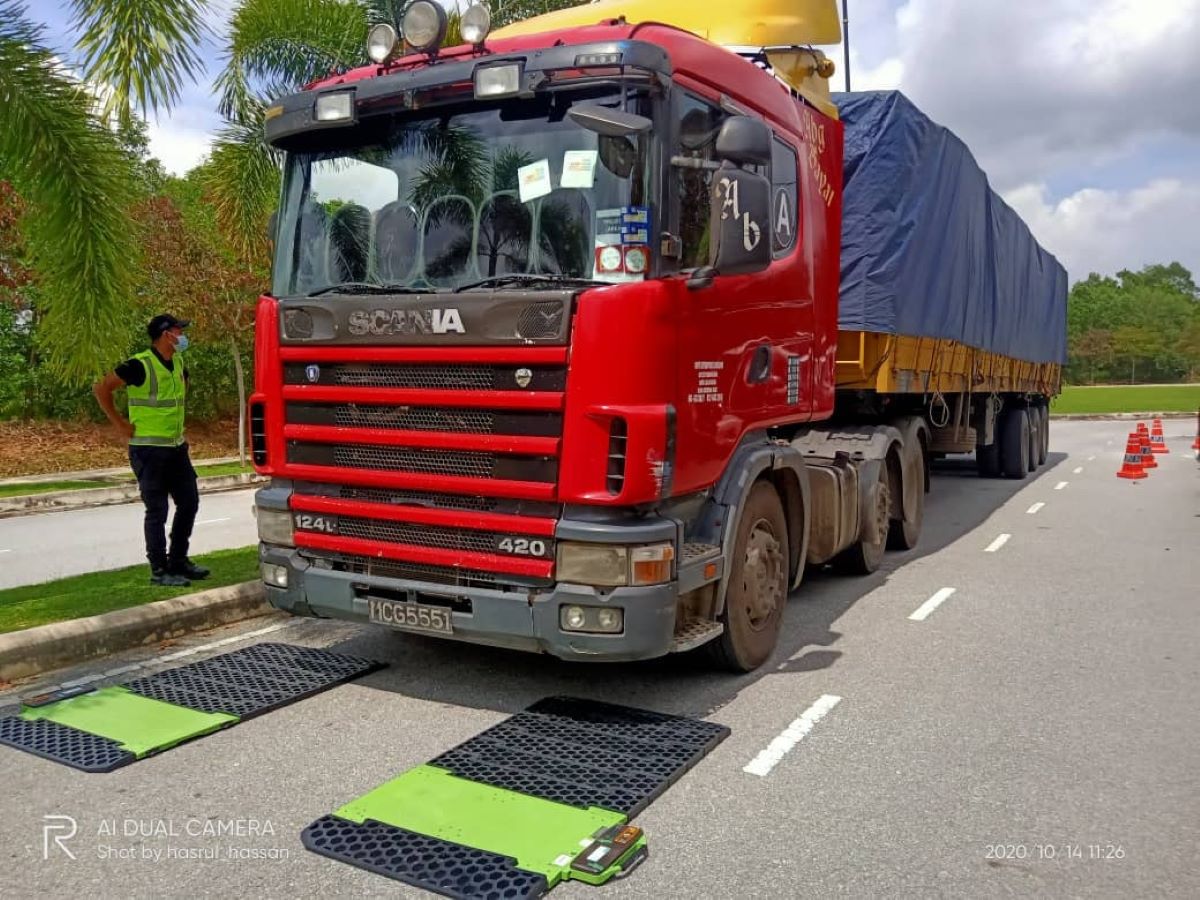PUTRAJAYA, Oct 14 — The Transport Ministry (MOT), through the Road Transport Department (JPJ), today launched an integrated enforcement operation — the war overloaded commercial vehicles — which will run until December 31.
Transport Minister Anthony Loke said the operation marks a firm enforcement move to curb complacency and non-compliance among commercial vehicle operators and drivers who overload their vehicles and flout road transport laws.
He said the operation will be carried out across five main zones — north, central, south, east and Borneo.
“Each state will deploy four enforcement teams, making a total of 12 active teams in each zone. Each series of operations will be conducted over a seven-day period,” he told a press conference after attending the JPJ monthly assembly and anti-corruption pledge ceremony here today.
He said the operation will focus on hotspots involving overloaded commercial vehicles transporting materials such as stones, sand, soil, silica, coal, iron, palm oil and logs, especially around quarries, ports and heavy industrial zones.
Loke stressed that the MOT and JPJ would not compromise with any party found breaching the load limits set under their licence conditions.
“The JPJ will also not tolerate any driver, owner or transport company that acts negligently or disregards public safety, resulting in road damage or accidents,” he said.
Meanwhile, Loke said the JPJ and Land Public Transport Agency (APAD) have been instructed to introduce a new administrative framework to strengthen enforcement against high-risk commercial vehicle operators.
Under the framework, repeat offenders will not only face JPJ summonses but may also have their vehicle permits or operator licences suspended or revoked by the APAD.
“This strict measure aims to put an end to the attitude of certain operators who treat fines as part of their operational costs. It is to ensure every company takes full responsibility for safety and compliance with transport laws,” he said.
He said the move followed findings from the inspection safety audit (JISA) conducted between June 23 and July 31 on 500 high-risk operators — 54.43 per cent of whom were found to have failed to comply with regulations.
“This figure reflects serious and systemic non-compliance, highlighting the urgent need to further strengthen enforcement mechanisms in a more comprehensive manner. I can no longer remain patient; there have been too many accidents involving heavy vehicles, which we believe are caused by overloading and speeding,” Loke said.


